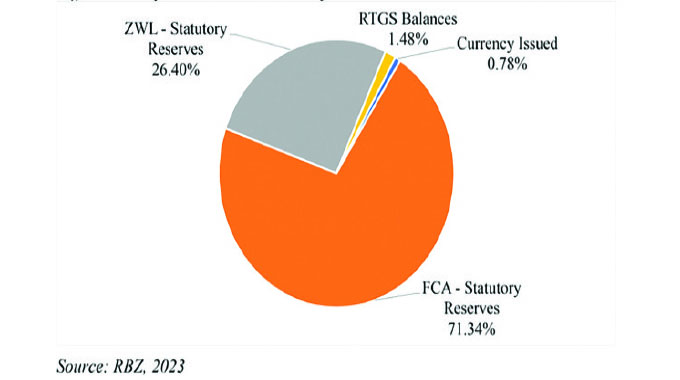Zimbabwe should reject ARIPO plans on seed control

Jeffrey Gogo Climate Story
ZIMBABWE should reject new plans by the African Regional Intellectual Property Organisation (ARIPO) on seed production and control because of the potential dangerous impacts on food security, particularly at a time of climate change, experts say.
Top African government officials will meet between June 29 and July 1 in Arusha, Tanzania, to iron out their positions on the ARIPO Plant Variety Protection Draft Protocol, and possibly ratify it.
The Protocol aims to transfer the control of seed from small farmers to profit-driven multinationals and governments by creating a harmonised regional plant variety protection system that favours seed producers.
As one of the 19 ARIPO members in Africa, Zimbabwe, which is facing a 700 000-tonne deficit of the maize staple this year following poor rains last summer, will attend the Arusha conference.
Experts say the protocol threatens to “erode farmers’ rights and the right to seed and food”.
“This protocol prohibits the essential practices of many millions of farmers who engage in the age-old practice of seed exchanging, sharing and local rural trading,” said the Alliance for Food Sovereignty in Africa (AFSA), a pan-African organisation promoting food independence.
“Africa’s farmers have selected, bred and enhanced seed for use in their specific conditions since the birth of cultivation on the continent.
“This farmer-based system was and remains the bedrock of food security for hundreds of millions of Africans.
“It is this age-old system of farmers’ rights that is under severe threat by ARIPO…”
Farmer seed independence is considered crucial to avoiding food losses that are climate change-linked.
With the climate changing, big global seed companies have tried to force through plans that compel farmers to buy only their patented seed, usually genetically modified seed, on the promise of increased agriculture yields.
However, experts dispute such claims. During her visit to Zimbabwe last year, leading Indian scientist and environmentalist, Dr Vindana Shiva, said seed patenting, GMOs or industrial agriculture will not improve agriculture output in Africa nor create long-lasting solutions for eliminating hunger and poverty.
She said the only way to fight poverty in Africa was to empower smallholder farmers by protecting their rights to use indigenous seeds and resist the corporate industrialisation of African agriculture.
Data from UN agencies such as the Food and Agriculture Organisation show that organic agriculture can increase food production by between 200-300 percent in Africa.
Smallholder farmers are currently responsible for 70 percent of the world’s food output, done through traditional methods.
Food systems colonisation
The ARIPO Draft Protocol threatens to disrupt this order of things. And farmers, who are usually shunned during consultations for drawing up such protocols, are not happy.
Mr Nelson Mudzingwa, a farmer, described ARIPO’s plans “as a new wave of colonialism over food systems” which will only create seed monopolies that disadvantage small farmers.
“We would want to inform ARIPO that seed is the source of our life, that is, embodiment of bio cultural diversity,” Mr Mudzingwa fumed in comments made on FoodMattersZimbabwe, an online platform sharing and interrogating food production systems here and elsewhere.
“It contains millions of years of biological and cultural evolution of the past, and the potential of millennia of a future unfolding. It is our birth right of every form of life and is the basis for the protection of biodiversity.
“Our rights to save, exchange, evolve, breed, sell seed is at the heart of food sovereignty. We will never accept to get trapped in debt…”
Ms Getrude Pswarayi, country co-ordinator at Participatory Ecological Land Use Management (PELUM) Zimbabwe, said the ARIPO Draft Protocol was offside, as it ignored concerns of farmers, who should be the centre of development in an agro-based economy like Zimbabwes’.
“The major flaw of the Draft Protocol is that it robs farmers of their right to freely save, re-plant and exchange seeds,” Ms Pswarayi said, by email.
This threatens the informal seed system that farmers have been using for many years to obtain seed. It forces farmers to rely on seeds produced by companies in a more formal set up aimed at making profit.
“Sadly, the protocol creates dependency and limits farmers’ freedoms and choices on seed planting, seed saving and seed trade.”
Taking away farmers’ freedoms and choices undermines food security on the basis that Zimbabwe’s economy is agriculture-centred where small-scale farmers grow their own food mostly from farm saved seed or seed obtained through exchanging with others, she said.
The ARIPO Protocol will violate certain sections of the Zimbabwe Constitution (Chapter 1, Section 15(a) and Chapter 2, Section 33) that deal with food security and the protection of traditional knowledge in farming.
Said Ms Pswarayi: “Although Zimbabwe has an informal system that gives farmers this flexibility to acquire seed through the informal system, the draft protocol seeks to put an end to this system.
“It undermines the critical role played by seeds as a source of food, medicine, in determining seasons and enriching different cultures in Zimbabwe.
“Those considering this draft protocol need to carefully assess whether the Protocol serves the people of Zimbabwe or a few individuals whose objectives are driven by economic gain.”
With climate change, agriculture will continue to face huge challenges. Precipitation will decline, droughts frequent and yields fall by as much as 50 percent in 35 years, according to predictions by the UN’s expert panel on climate change.
Indigenous seeds are widely seen as a viable adaptation option, helping farmers to cut costs on seed purchases, yet at the same time putting to good use their wealth of traditional knowledge on seed breeding, seeds that can tolerate harsh climates.
Mr John Wilson, an agro-ecologist from Harare said the draft protocol was deceptive, designed to takeover Africa’s agriculture through the back door and urged Zimbabwe to carefully examine the text before adopting anything.
“There are massive commercial interests behind this,” Wilson cautioned on the online platform, FoodMattersZimbabwe.
“Anyone who raises questions about it is accused of wanting to keep people in poverty. The same cliché that gets used by those who question the promotion of genetic engineering.
“It seems to me crucial that the Zimbabwe Government raises questions about the promotion of this Protocol, as it’s really not in the interests of Zimbabwe seed sovereignty.
“The whole approach is based on the outdated paradigm of African countries following directly in the ‘development’ steps of northern countries, unquestioningly.”
God is faithful.








Comments